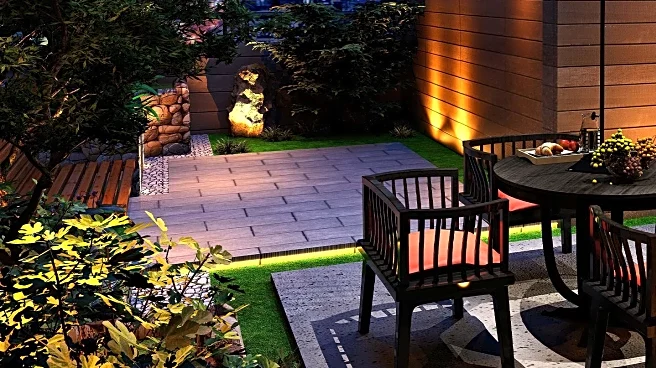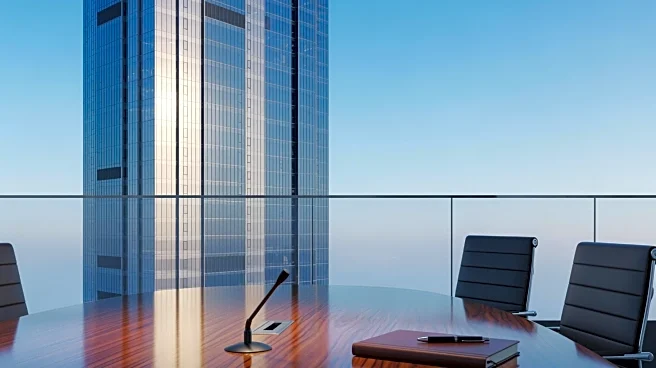What's Happening?
Scott LaDue, a deck building expert from Rochester Deck Builders in Victor, New York, emphasizes the importance of small design details in creating functional and aesthetically pleasing outdoor spaces.
In a recent article, LaDue discusses how elements such as step placement, railing design, and deck board layout can significantly impact the usability and visual appeal of outdoor areas. He notes that aligning deck boards with natural foot traffic can make spaces feel larger, while thoughtful seating placement can enhance comfort and usability. LaDue also highlights the role of lighting and heating in extending the usability of outdoor spaces beyond summer months. Material selection, such as using sustainably sourced wood, is crucial for long-term maintenance and environmental alignment.
Why It's Important?
The insights provided by Scott LaDue are significant for homeowners looking to maximize the functionality and aesthetic appeal of their outdoor spaces. By focusing on small design details, homeowners can create environments that are not only beautiful but also practical and safe. This approach can lead to reduced maintenance costs and increased enjoyment of outdoor areas throughout the year. Additionally, the emphasis on sustainable materials aligns with growing environmental concerns, offering a way to enhance outdoor spaces while being mindful of ecological impact. Homeowners stand to benefit from improved property value and enhanced lifestyle quality.
What's Next?
Homeowners and designers may consider integrating LaDue's recommendations into their outdoor space planning and renovations. As awareness of the importance of small design details grows, there may be increased demand for expert consultations and sustainable materials in the deck building industry. This could lead to innovations in outdoor design and construction practices, as well as a shift towards more environmentally friendly building materials.
Beyond the Headlines
The focus on small design details in outdoor spaces reflects broader trends in home improvement and sustainable living. As consumers become more environmentally conscious, the demand for sustainable materials and energy-efficient designs is likely to increase. This shift could influence industry standards and lead to new regulations promoting eco-friendly building practices. Additionally, the emphasis on usability and comfort in outdoor spaces highlights changing lifestyle preferences, with more people seeking to create versatile living environments that extend beyond the confines of their homes.









